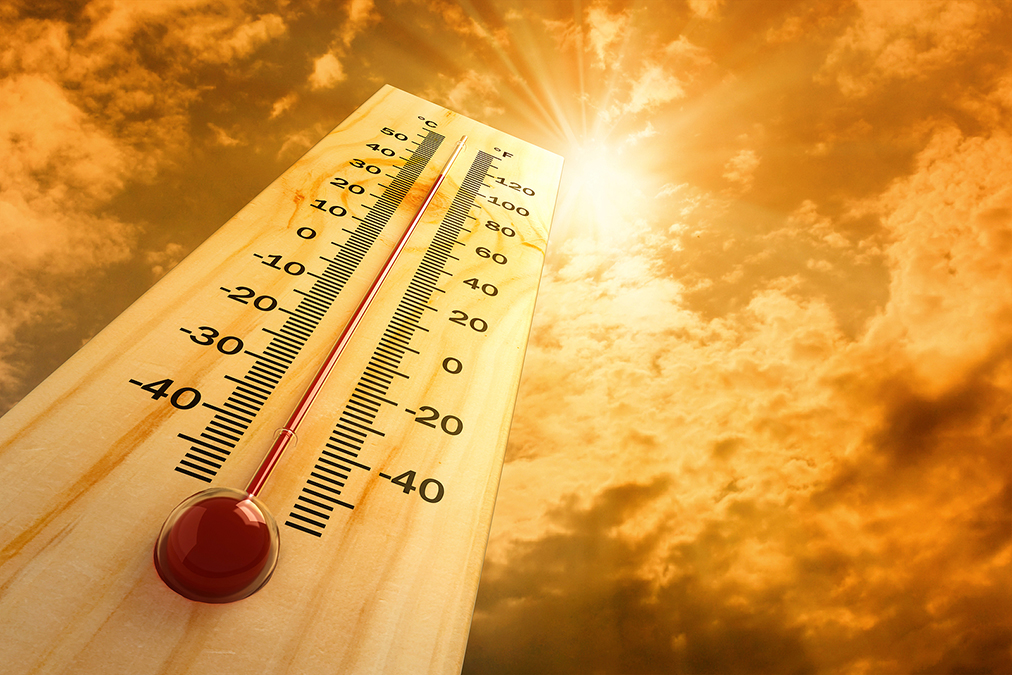 Researchers have just discovered something surprising about what makes sleep apnea worse — and it has nothing to do with your body type or bedroom setup.
Researchers have just discovered something surprising about what makes sleep apnea worse — and it has nothing to do with your body type or bedroom setup.
A 2025 American Thoracic Society Conference study found that rising temperatures make sleep apnea much more severe.
If you’ve ever tossed and turned on a hot summer night, sweating under the sheets and waking up feeling tired, it won’t surprise you that scientists have known for some time that heat can disturb sleep.
But this is the first large-scale study to investigate whether hot weather worsens sleep apnea and increases its prevalence.
The team, led by scientists from Flinders University in Australia, used data from more than 116,000 people across 41 countries.
Most participants were middle-aged (around 49 years old), and about three-quarters were men.
All participants used an FDA-approved under-mattress sensor that tracked their sleep every night between 2020 and 2023. On average, each person had about 500 nights of data recorded.
The researchers then compared this sleep data with 24-hour outdoor temperatures using advanced climate models.
They focused on the severity of sleep apnea, defined as having 15 or more breathing interruptions per hour of sleep, and tracked how this changed in response to rising temperatures.
They found what they expected:
-
1. People were 70% more likely to have moderate-to-severe sleep apnea on especially hot nights (27.3°C) compared to cooler nights (6.4°C).
2. The effect was strongest in European countries, where the risk doubled or tripled on hotter nights.
3. In Australia, the risk went up by 40% to 95%, while in the US, it increased by 10% to 40%.
4. The connection between temperature and sleep apnea severity was statistically significant in 29 countries.
5. The added burden of heat-related sleep apnea in 2023 alone was estimated to cause over 786,000 years of healthy life lost due to illness or death.
6. Workplace productivity also took a hit, with estimated losses of 32 billion US dollars worldwide in 2023 due to sleep apnea worsened by heat.
7. Looking ahead, if global temperatures rise by two degrees Celsius or more, sleep apnea’s global impact could increase by 1.5 to three times by the year 2100.
So, rising temperatures are already making sleep apnea worse—and climate change threatens to dramatically increase this health burden in the coming decades.
To reduce your risk, use fans, air conditioning, or cooling mattress pads to maintain a comfortable sleeping temperature during heat waves. Staying hydrated during the day and taking a cool shower before bed might also help.

 Overcoming IBD
Overcoming IBD Multiple Sclerosis
Multiple Sclerosis Banishing Bronchitis
Banishing Bronchitis Gum Disease Gone
Gum Disease Gone Overcoming Onychomycosis
Overcoming Onychomycosis Neuropathy No More
Neuropathy No More The Prostate Protocol
The Prostate Protocol Brain Booster
Brain Booster
 Ironbound
Ironbound
 Solution for Shingles
Solution for Shingles
 The Bone Density Solution
The Bone Density Solution
 The Ultimate Healing Protocol
The Ultimate Healing Protocol
 The Parkinson's Protocol
The Parkinson's Protocol
 The Chronic Kidney Disease Solution
The Chronic Kidney Disease Solution
 Overthrowing Anxiety
Overthrowing Anxiety The Fatty Liver Solution
The Fatty Liver Solution The Hypothyroidism Solution
The Hypothyroidism Solution
 The End of Gout
The End of Gout The Blood Pressure Program
The Blood Pressure Program
 The Oxigized Cholesterol Strategy
The Oxigized Cholesterol Strategy
 Stop Snoring And Sleep Apnea Program
Stop Snoring And Sleep Apnea Program
 The Arthritis Strategy
The Arthritis Strategy The Vertigo & Dizziness Program
The Vertigo & Dizziness Program The 3-Step Diabetes Strategy
The 3-Step Diabetes Strategy Hemorrhoids Healing Protocol
Hemorrhoids Healing Protocol The Erectile Dysfunction Master
The Erectile Dysfunction Master Weight Loss Breeze
Weight Loss Breeze The IBS Program
The IBS Program The Insomnia Program
The Insomnia Program The Migraine and Headache Program
The Migraine and Headache Program The Neck Pain Solution
The Neck Pain Solution The Menopause Solution
The Menopause Solution The Ejaculation Master
The Ejaculation Master The TMJ Solution
The TMJ Solution The Acid Reflux Solution
The Acid Reflux Solution The Fibromyalgia Solution
The Fibromyalgia Solution The Psoriasis Strategy
The Psoriasis Strategy